Unpacking the success and challenges of Singapore’s gourmet grocers
While the market for premium foods has grown, local players are also looking further afield
[SINGAPORE] Last week, news of DFI Retail Group’s sale of its Cold Storage and Giant supermarkets to Malaysia’s Macrovalue was followed by pledges that Cold Storage customers can soon expect a wider range of upscale merchandise.
The move reflects the growing demand for everything from organic meat and vegetables to artisanal cheeses and fine wines, even among those who shop in mainstream supermarkets.
This begs the question: What about niche grocers who started a decade ago or earlier, catering to a more exclusive customer base?
Peh Quan Yao, a consultant at data analytics firm Euromonitor International, says these gourmet grocers continue to stand out by cultivating top-of-mind awareness and a distinct position, which boosts brand association among their target clientele.
“They also leverage experiential retail concepts such as in-store bistros or cafes, which showcase their produce quality, and imported speciality goods that reinforce their brand identity and unique positioning,” he adds.
He also notes that these niche grocers are seeing growth from rising disposable incomes and an increasingly affluent population, along with mounting consumer awareness of, and demand for, premium and organic products.
But while demand for such items remains “healthy and resilient”, grocers are likely selective about store expansion, with locations carefully considered according to where their target customer segments are, he says.
Indeed, gourmet grocers have been finding ways to carve a niche for themselves and fight for market share. We find out from three players how they’re faring in the face of supermarket chains increasingly muscling in on the high-end product category, and the challenges they face in this fiercely competitive space.
Ryan’s Grocery
In 2014, Wendy Foo and Sebastian Chia started their company, Alternative Selection, to bring in quality meats from Australia – simply because it made more sense than personally lugging the products in. They were hunting down organic meats for their autistic son, Ryan, who is intolerant to a long list of food items, including broccoli, watermelon and cucumber.
A year later, they opened Ryan’s Grocery, a 1,700-square-foot (sq ft) shop in Binjai Park, and Foo started importing gluten-free items even as she battled breast cancer.
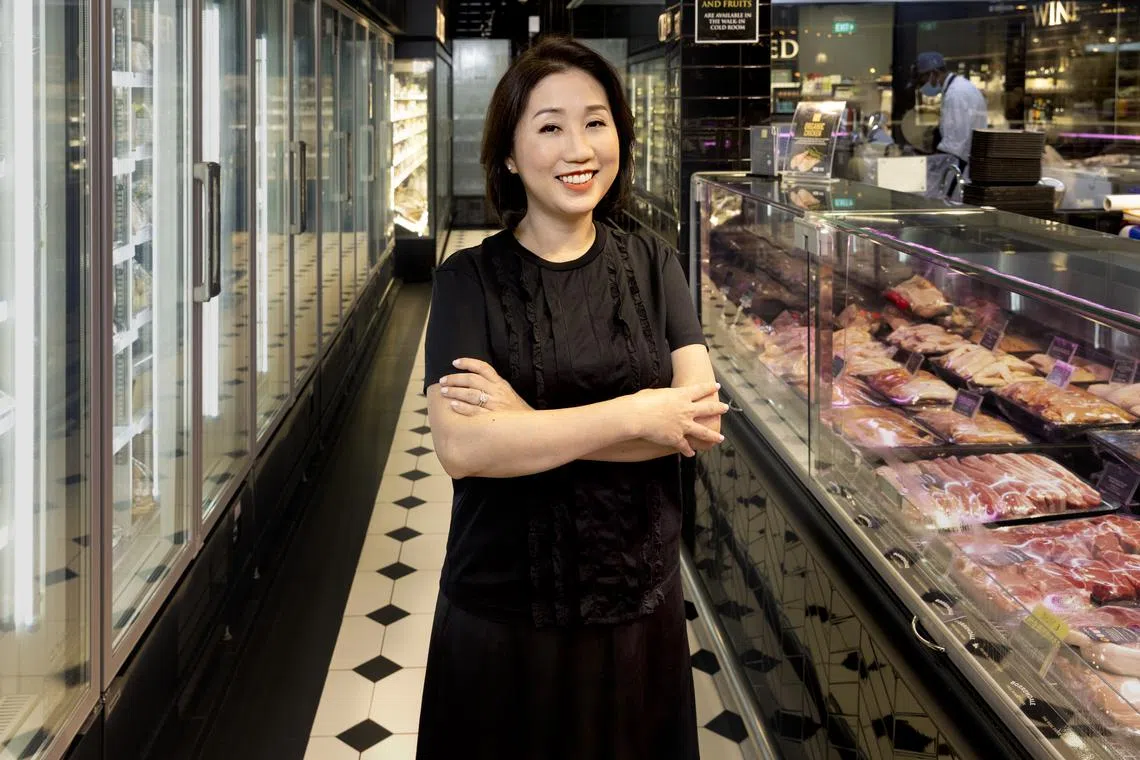
“I believe food can heal,” says the co-founder, who had a 25-year career in media sales, marketing and advertising. Ryan, now 18, had less tummy trouble, slept better and was calmer after switching to more suitable produce.
Others who were also seeking “clean foods” for their loved ones found a kindred spirit in Foo’s store.
In January 2020, just before the pandemic caused a lockdown across the world, Ryan’s Grocery moved into a prominent, 4,200-sq-ft space in Great World City mall, where the founders also run a restaurant called Ryan’s Kitchen.
“Business was so good and there were queues all over,” Foo recalls.
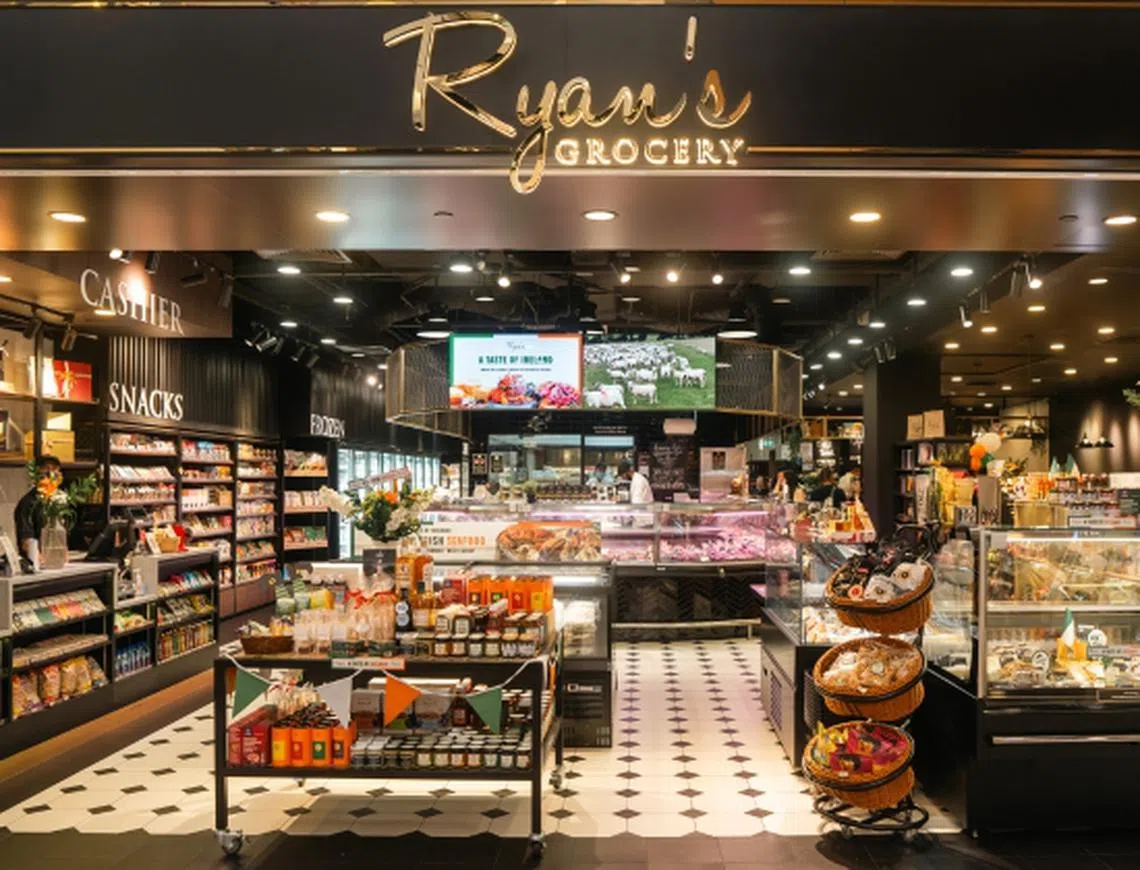
Today, Ryan’s Grocery is the only full-service organic butchery and grocery store in Singapore. It also carries allergen-free and allergen-friendly food ranging from organic vegetables, baking products, condiments and beverages to snacks and other groceries.
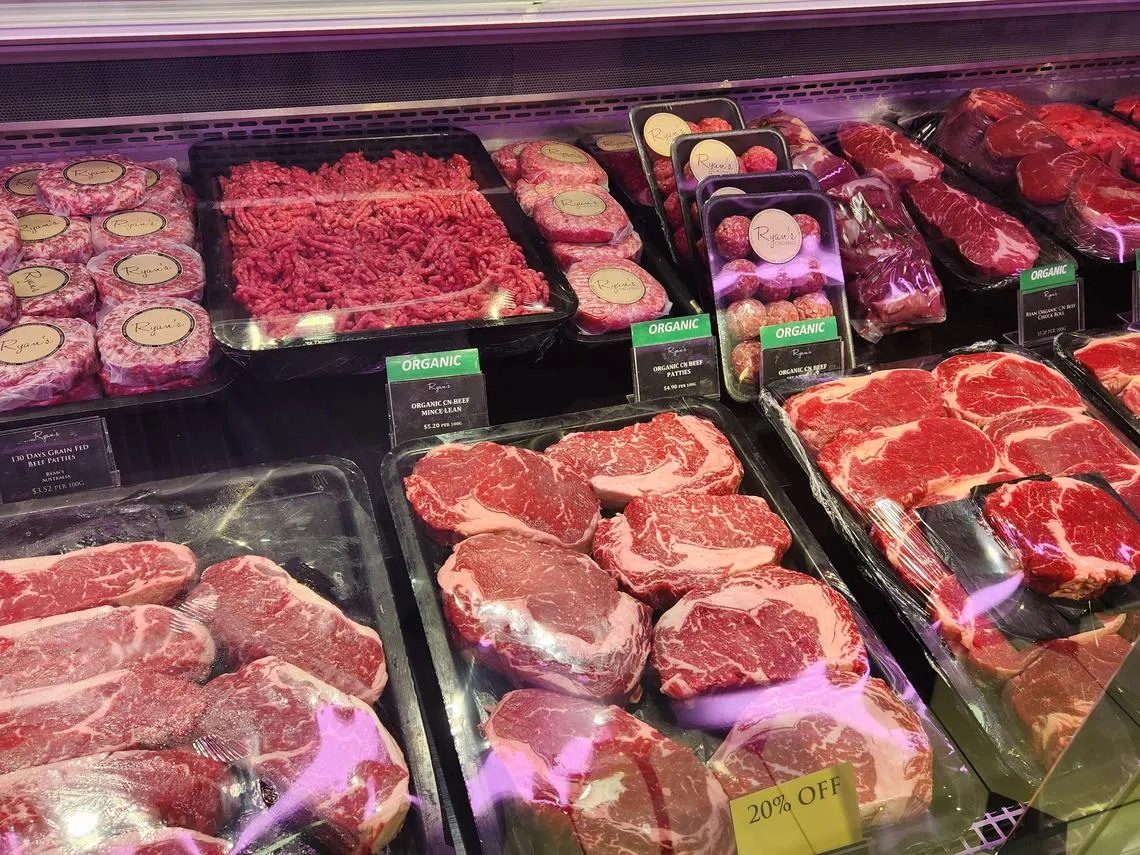
In addition, there are Ryan’s Butchery counters in 13 Cold Storage supermarkets. In fact, Ryan’s Grocery is the second-largest importer of organic beef and lamb for some of Foo’s Australian suppliers – second only to America. Under Alternative Selection, she also supplies meat products to supermarkets, hotels and restaurants.
“It may seem boring,” she says with a laugh. “But we’re very committed to our suppliers because of their quality.”
Business has grown alongside greater awareness of children’s developmental milestones, with Singaporeans now more prepared to send their kids for tests if they notice that something is amiss.
“They’ve been buying food for their kids diagnosed with global developmental delay and attention deficit hyperactivity disorder,” says Foo, whose clientele is an equal mix of expatriates and locals.
“We also have cancer patients, people with skin problems like acne and eczema, and the health-conscious, who come to us for ‘clean food’.”
While Ryan’s Grocery has been growing – these days by a single digit in percentage terms – it hasn’t been without its challenges.
“The problem is that my rental grows faster than my revenue,” says Foo, whose recent lease renewal at Great World City came with a 17 per cent price hike.
Another big issue is the cost and lack of skilled staff, says Foo, who gets her sister to help out.
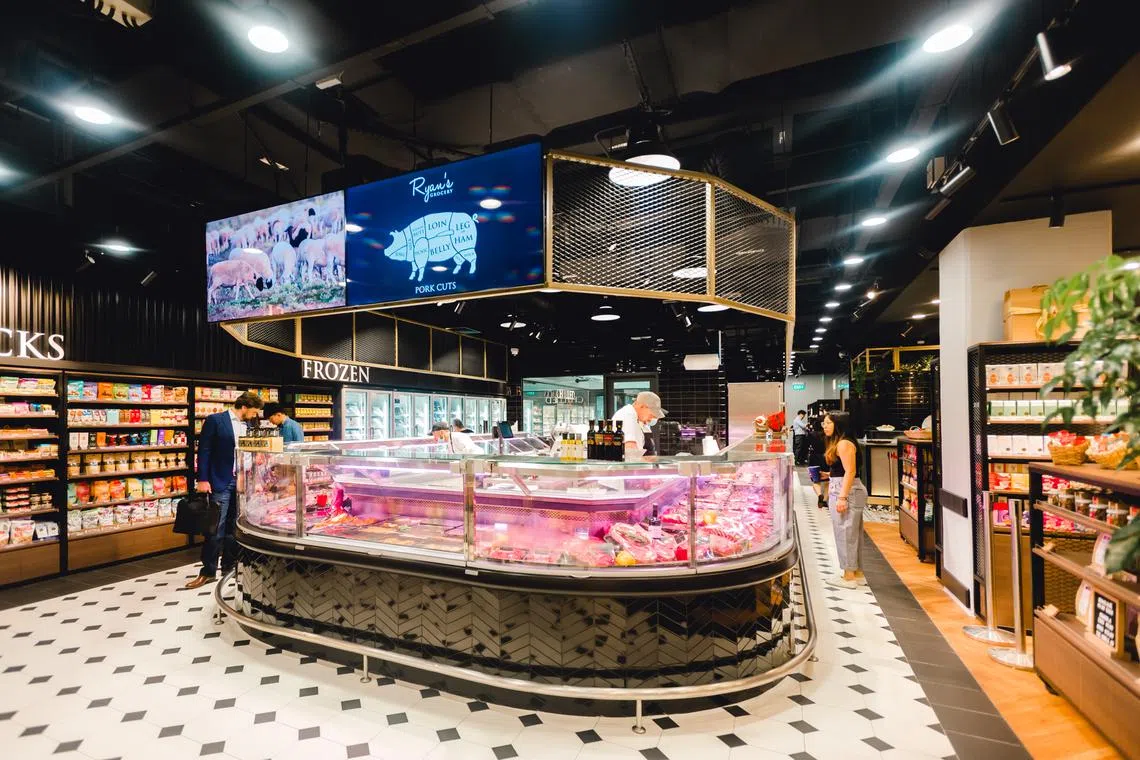
There has also been a reduction in sales to tourists, who would call ahead and order hundreds or even thousands of dollars’ worth of meat. Meanwhile, residents are spending more time overseas and reducing their expenditure here.
With the high cost of local operations, Foo looked to venturing overseas. However, an attempt at expanding into Vietnam with a partner in late 2019 didn’t end well, since they couldn’t find the right people to run the business.
This was particularly disappointing for Foo, as she’d spent a lot of time, money and effort getting Ryan’s Grocery registered to do business in the country.
“We decided to let the two-year contract end, shut it down, and give it time before reviving the brand,” she says. “I still want to go overseas; that’s my expansion plan. We’re talking to people and looking at (other) Asean countries, but I have to go to Vietnam. If not, it’s a waste.”
Although she’s been offered money to open butcheries outside supermarkets here, she says she is happy with the current win-win arrangement with Cold Storage.
“Many people have money, but if they are less committed and don’t understand the business, it’s very difficult,” she explains. “So I’m looking for partners with synergy.”
She still harbours hopes of opening more Ryan’s Grocery stores here, especially as customers from other parts of the country have been asking for them.
“Singapore is saturated, but we want to expand. It’s just that, right now, that’s not possible with the high rents.”
Little Farms
Since opening its first store in River Valley in February 2016, Little Farms has expanded to seven grocery outlets and six restaurants, with the latest opening last December on Sentosa. New locations are also on the cards later this year.
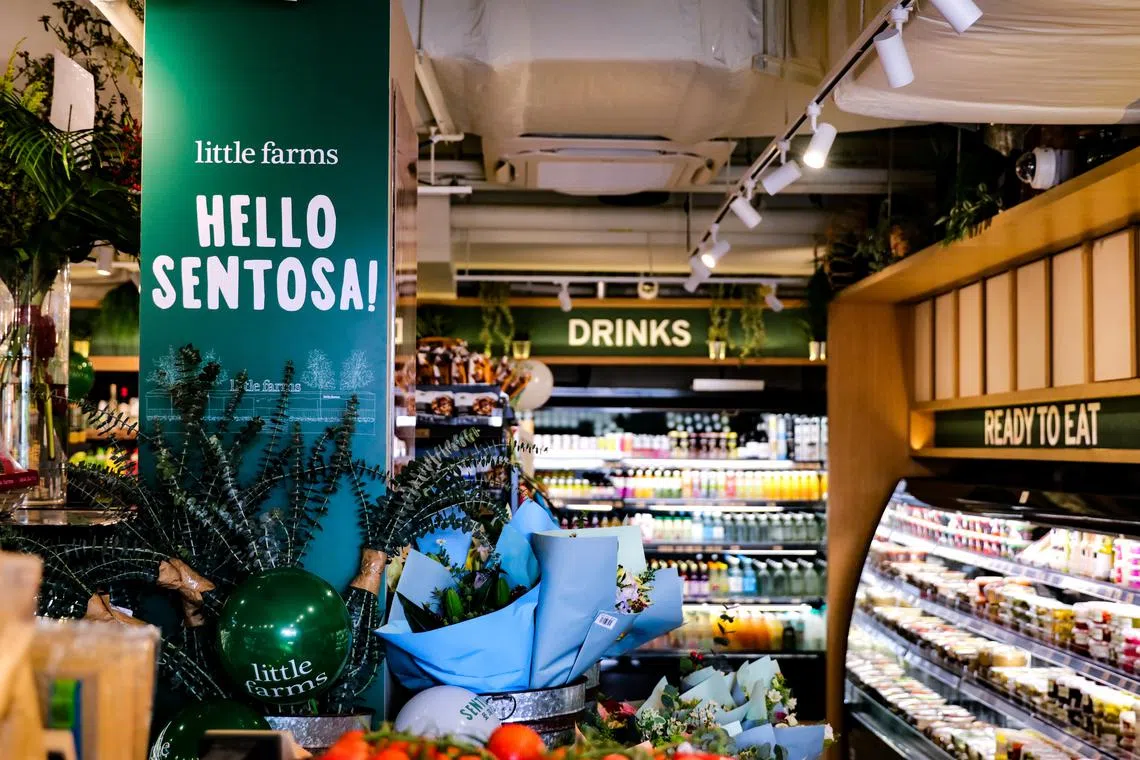
Chief executive officer Joe Stevens says the business started at a time when Singapore’s supermarket offerings of premium fresh produce and organic products were limited.
“It was also becoming increasingly clear that diet played a crucial role in long-term health and well-being,” he says, promising that Little Farms ethically sources its products, which include organic, minimally processed and premium-quality meats, seafood, fruits, vegetables, wines and pantry items.
“When we say we buy premium quality, we mean produce with the best flavour, largest size and most attractive appearance from a grower we trust,” explains Stevens, who spent more than two decades in investment banking and private equity before joining the company in 2018.
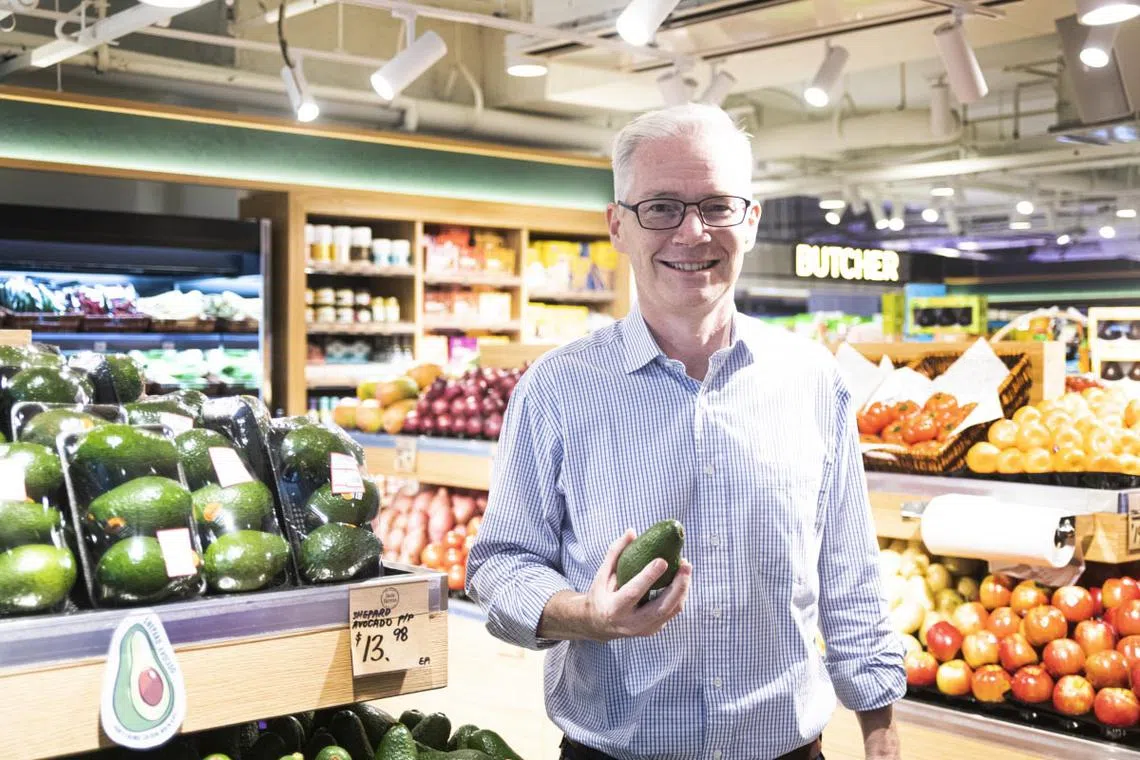
“This is produce that has ripened on the plant, vine, bush or tree so it attains its full nutritional and flavour potential, and is ready to consume. Typically, it is in our stores between 24 and 48 hours following harvest.”
With more opting for fresher and healthier options, Little Farms has doubled its revenue since 2021. The grocer’s customer profile has also shifted over the years, from mostly expatriates to locals now making up some 70 per cent of its buyers.
Besides expanding Little Farms’ footprint, Stevens has also tried to do things differently. At the grocer’s flagship store at Tanglin Mall – also its largest at 3,846 sq ft, with another 2,535 sq ft for its restaurant – he flipped the traditional supermarket layout around such that the charcuterie and butcher counters are right at the front.
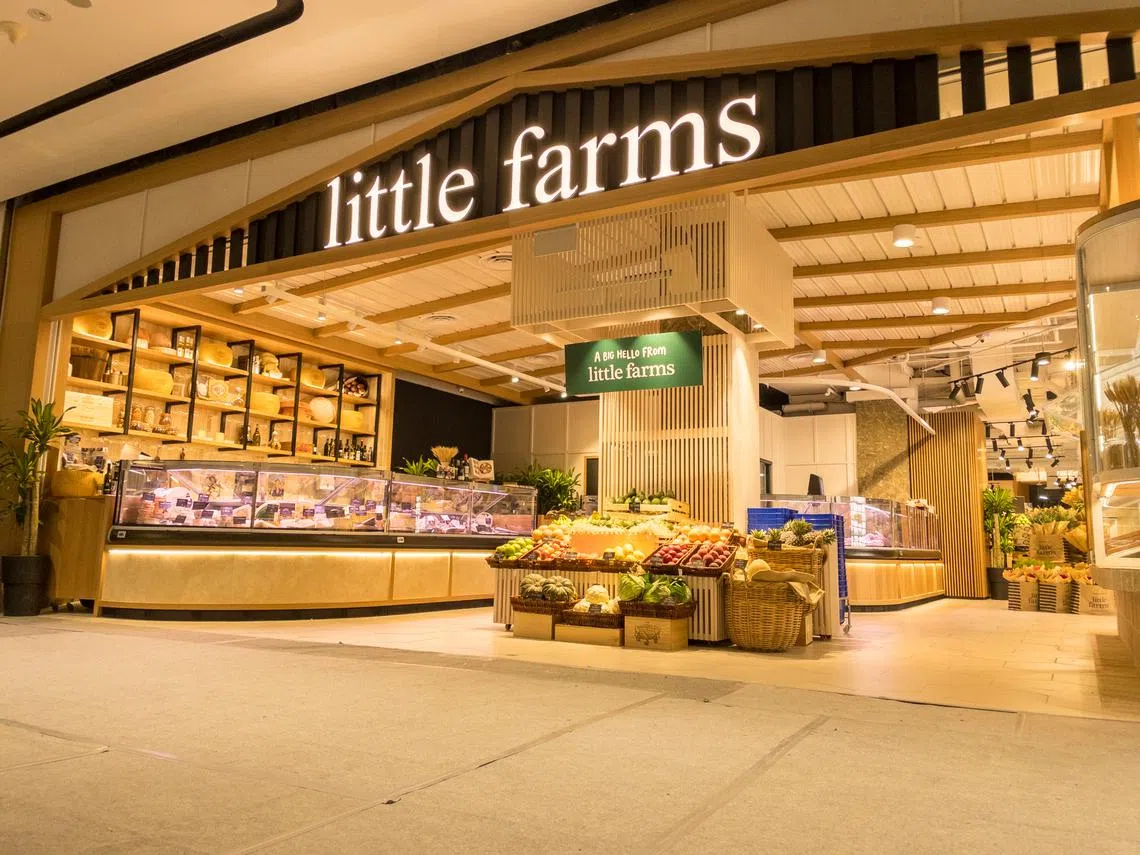
Business growth notwithstanding, he, like others, is finding it challenging to attract high-quality, young Singaporean talent to the sector. “Ours is both a product and a people business, and we need to get both right,” he says.
To draw talent, he is building a progressive career path for staff, with clear visibility on everything from training opportunities and compensation to promotion requirements. He is also creating a more structured learning and development programme.
“It’s still early days, but we are making solid progress,” he shares.
In addition to the upcoming Singapore outlets, there are plans to expand Little Farms overseas by the year’s end. “We are exploring growth opportunities in South-east Asia’s (key) cities, including Bangkok, Jakarta, Kuala Lumpur, Ho Chi Minh City, Hanoi and Manila, but no final decision has been made on which market we will enter first,” says Stevens.
As for mainstream supermarkets increasingly offering premium products, the CEO says Little Farms will continue to focus on “delivering a great experience” for its customers.
“We’ve built a strong community who value not only what’s on our shelves, but why and how products got there, and the deeply personal level of service we seek to provide.”
Culina
When Culina turned 30 last year, it marked the occasion with its first overseas outpost – an 18,300-sq-ft market, bistro, bakery and bar in Kuala Lumpur’s upscale The Shoppes at Four Seasons Place.
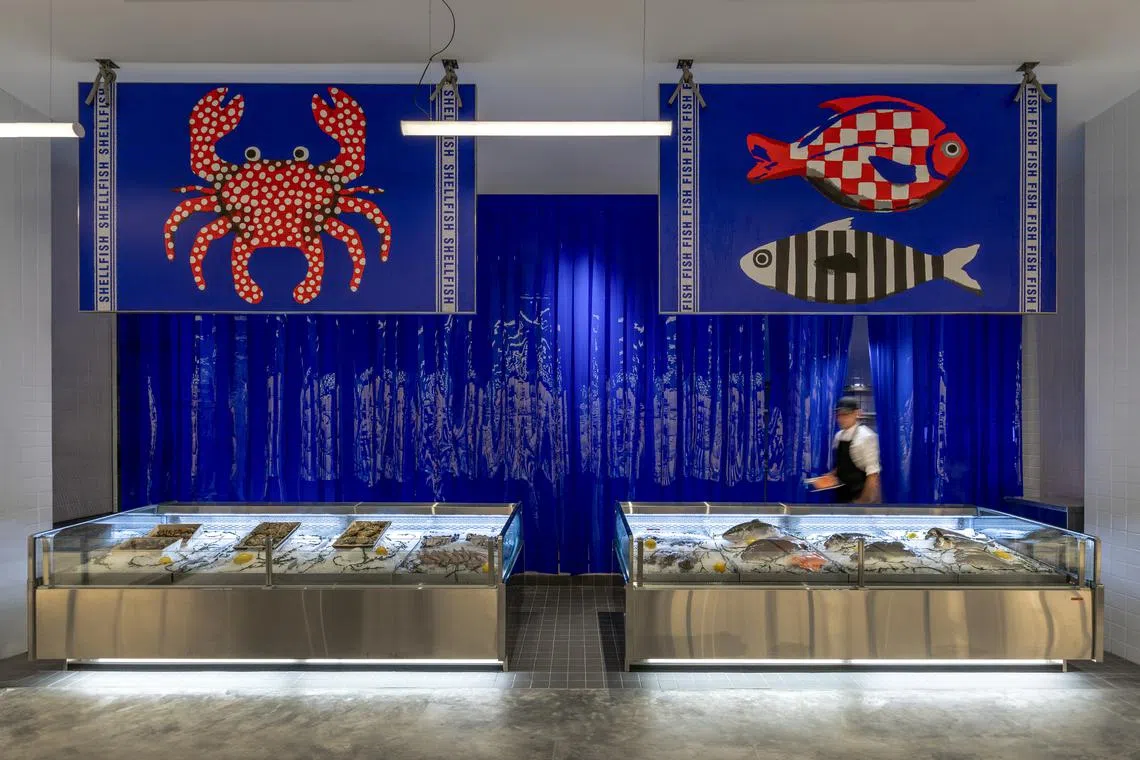
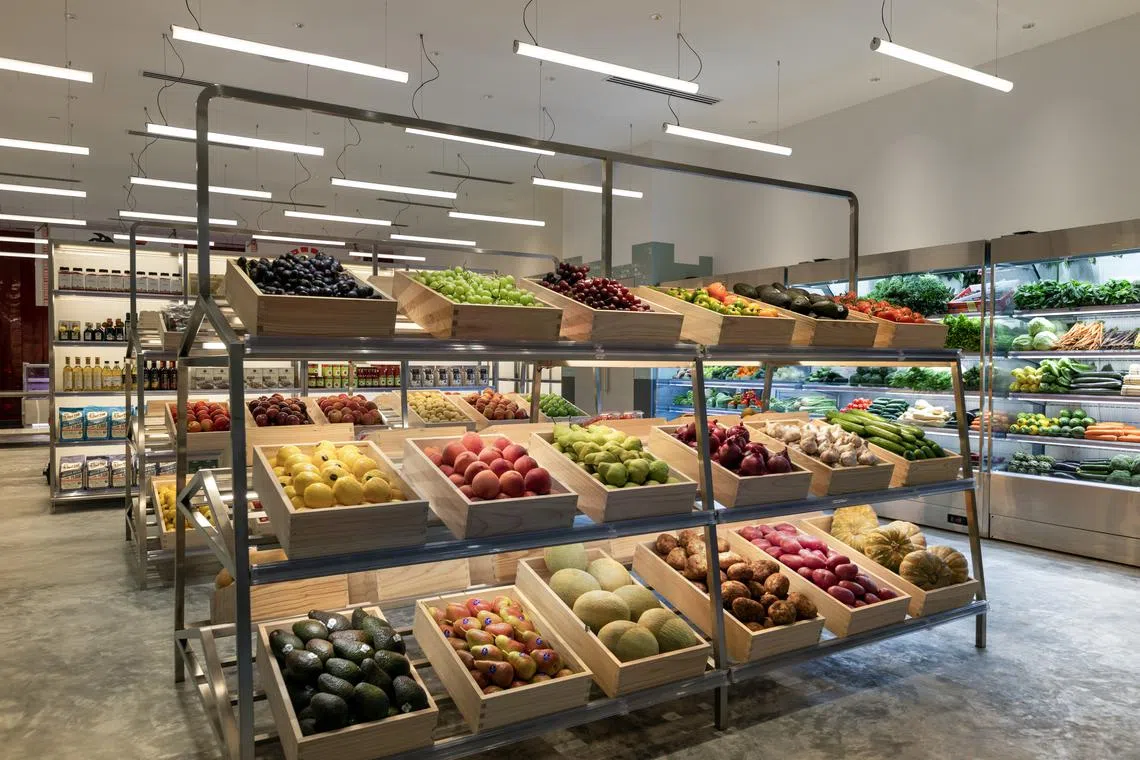
The gourmet grocer was acquired by Como Group in 2012, and in 2019 moved to a 15,000-sq-ft space in Dempsey that is 2.5 times larger than its previous premises. It now also distributes fresh foods, delicacies and fine wines to more than 1,000 restaurants, hotels and premium retail outlets in Singapore.
To Cold Storage, Culina distributes wines, gourmet food and organic baby and children’s food, among others. It also runs a butchery in 15 FairPrice Finest outlets.
Outside of Singapore, Culina exports to Indonesia and the Maldives.
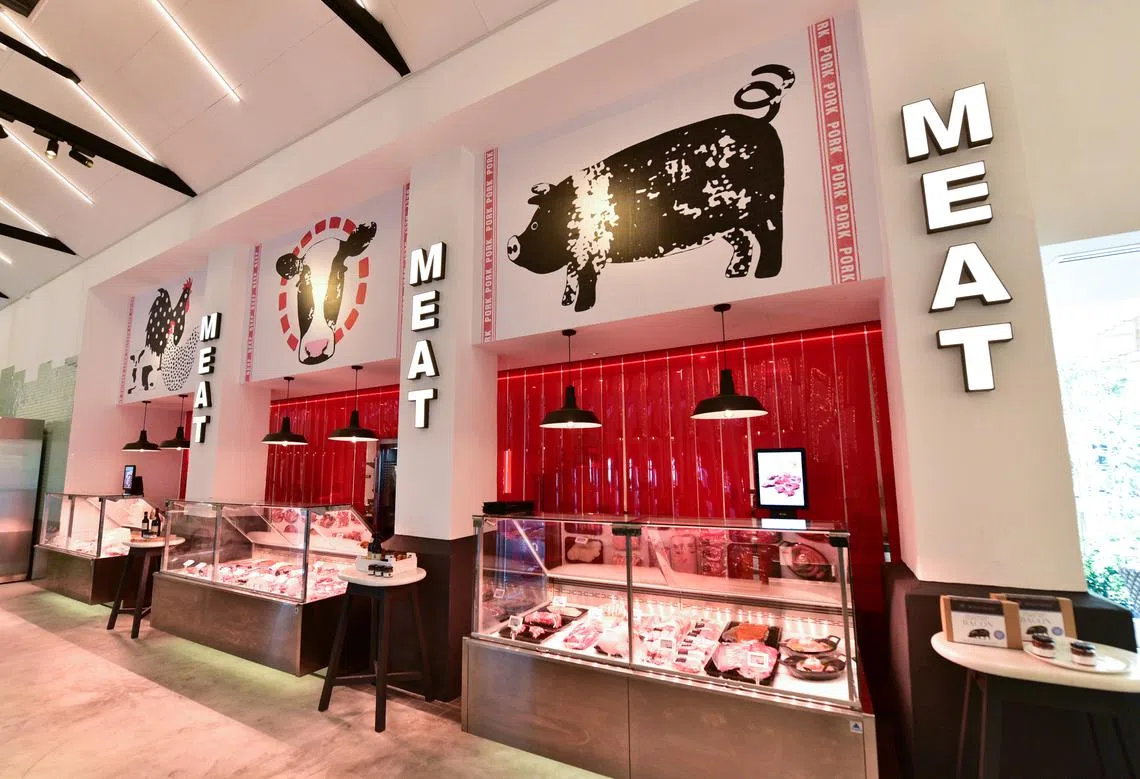
Leelyne Yeo, the company’s general manager for Singapore and Malaysia, says Culina provides premium-quality produce, sustainably sourced seafood, artisanal cold cuts and cheese, and small-batch goods from dedicated growers.
Its customer base here is a “well-balanced mix” of locals, expatriates and trade professionals. And though it has seen “some decline” in its expatriate customer base following Covid-19, the business still has “a strong following”, including among chefs, restaurateurs and home cooks.
Yeo, who declined to disclose revenue-related figures, says Culina continues to see robust demand for its “carefully curated selection of fine foods and wines”.
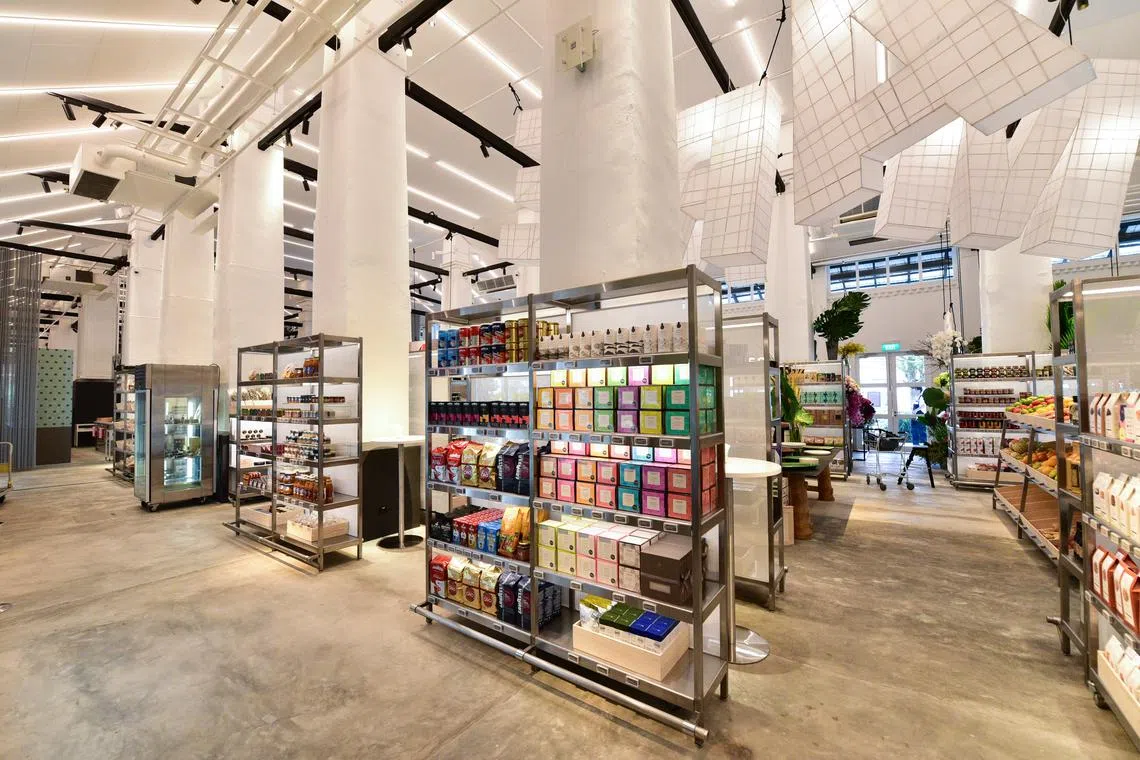
“One of the biggest challenges in the gourmet grocer space is navigating environmental and biosecurity issues that impact product availability,” she says, adding that outbreaks can disrupt the supply chain for a wide range of products across multiple countries, affecting both availability and pricing.
As for Culina’s expansion plans, Yeo says: “While we remain open to new market opportunities, our priority remains on refining our curation of exceptional products for our customers.”
Decoding Asia newsletter: your guide to navigating Asia in a new global order. Sign up here to get Decoding Asia newsletter. Delivered to your inbox. Free.
Copyright SPH Media. All rights reserved.

